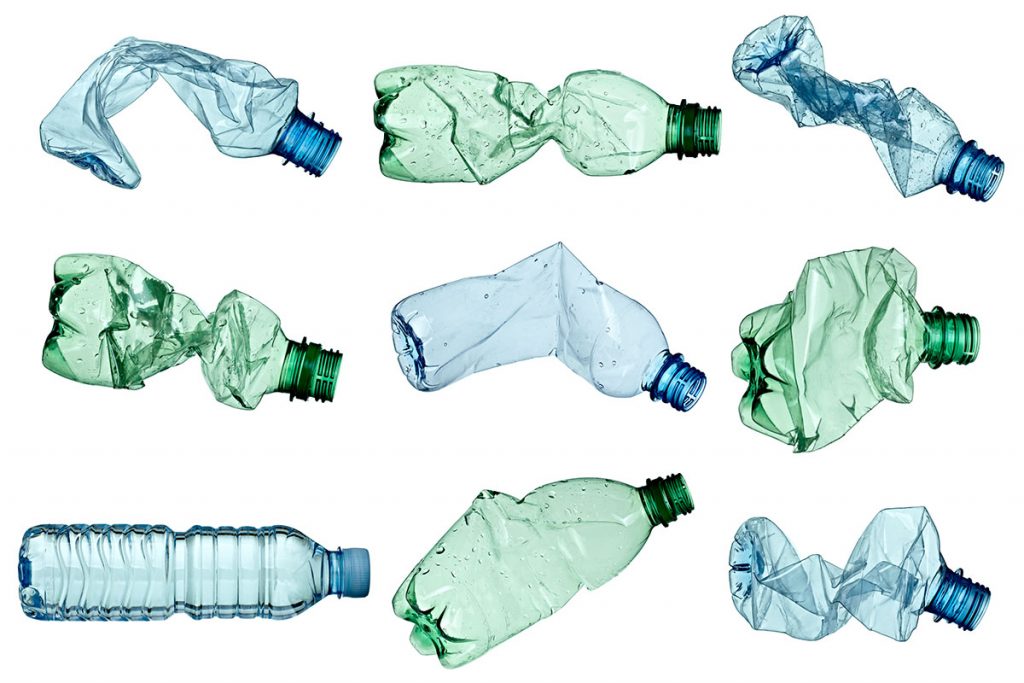
During a webinar hosted by The Recycling Partnership and Resource Recycling’s Policy Now, stakeholders zeroed in on the components that make effective recycling policy. | Picsfive/Shutterstock
As conversations around extended producer responsibility for packaging continue to evolve, it has become clear legislation can include a wide range of components and targets. A group of policy experts recently offered thoughts on how to best bring the pieces together.
Stefani Millie Grant, the head of external affairs at Unilever, noted that major brand owners are balancing a wide variety of environmental priorities and would like to see legislated systems that take that fact into account.
Unilever’s mantra is “less plastic, better plastic, no plastic,” she said, adding it’s important to have flexible laws to allow businesses “to figure out what’s working and what’s not working and not lock us into a system designed for failure.”
Grant was speaking on the “By The Numbers Webinar: Transforming U.S. Recycling with EPR,” hosted by The Recycling Partnership and Resource Recycling’s Policy Now on March 21.
In addition to Grant, speakers were Kirsten Witt, policy director with the Coca-Cola Company; Lynn Hoffman, co-president of Eureka Recycling; Dylan de Thomas, vice president of public policy and government affairs at The Recycling Partnership (TRP); and McKenna Morrigan, strategic advisor for Seattle Public Utilities.
The discussion was moderated by Dan Leif, editorial director at Resource Recycling.
‘Time to bring producers to the table’
Morrigan said the city of Seattle has already taken all the steps to follow best practices for recycling, including pay-as-you-throw collection, universal service and extensive investment in outreach and education. Nonetheless, she said, “we cannot keep up with the rapid change in packaging.”
“As a local government we know that we have taken recycling as far as we can on our own and it’s time to bring producers to the table,” she said.
The question then is how best bring those companies to the table in a meaningful way, and on the webinar stakeholders laid out what think makes the optimal EPR system.
Grant of Unilever said a strong EPR framework would reflect the unique waste management requirements of municipalities across the country, close the gap between technically recyclable and actually recycled, and hold businesses accountable for the packaging choices they make.
She added that in her view, recycled content mandates should always be paired with EPR to make sure there’s enough material to meet the content goals.
“Our position is if you’re going to have recycled content mandates – Washington state has some, New Jersey has some – they need to be coupled with an EPR system,” she said, adding that “we’re trying, but if the material is not there, to mandate that on us, it makes it very challenging.”
Hoffman brought the viewpoint of a materials recovery facility operator – Eureka Recycling, a nonprofit entity, runs a 120,000 square-foot-facility in Minneapolis.
“Watertight definitions” are on Hoffman’s list for optimal EPR, as is eco-modulation that drives reduction, redesigns, decreases toxins, incentivizes recycled content and pays for the true cost of impact.
She recommended setting “real metrics of success along the whole supply chain” and ensuring transparency and traceability to “make sure we’re solving for the right problems.”
Grant also feels that some guidelines at a federal level, such as definitions, would be useful.
“Hopefully we will get that state by state, but looking at a potentially 50-state compliance is very daunting,” she said.
Role of the PRO
In the opinion of Witt from Coca-Cola, effective EPR would be run by the industry through a single producer responsibility organization (PRO) to start and would set producer fees according to material type, so one type of material would not be subsidizing another. There should also be a clear role for government and agency oversight, she argued.
Having fees fund 100% of the cost for residential recycling of packaging and printed paper is also a good addition, Witt added, as is giving obligated producers the right of first refusal to their share of recovered material, at market terms.
“That’s important because we do have goals,” she said.
That access to material was another central focus of webinar participants. Hoffman noted that market development needs to be regional to fully realize the benefits, and a straightforward EPR policy might not be enough to do that.
“EPR is a really great problem solver in a lot of ways but needs a lot of companions, like truth in labeling,” she said.
Witt said getting the right of first refusal “helps drive that end market, helps drive the value of the recycled material in the first place so we want to continue to feed that mechanism in every possible way.”